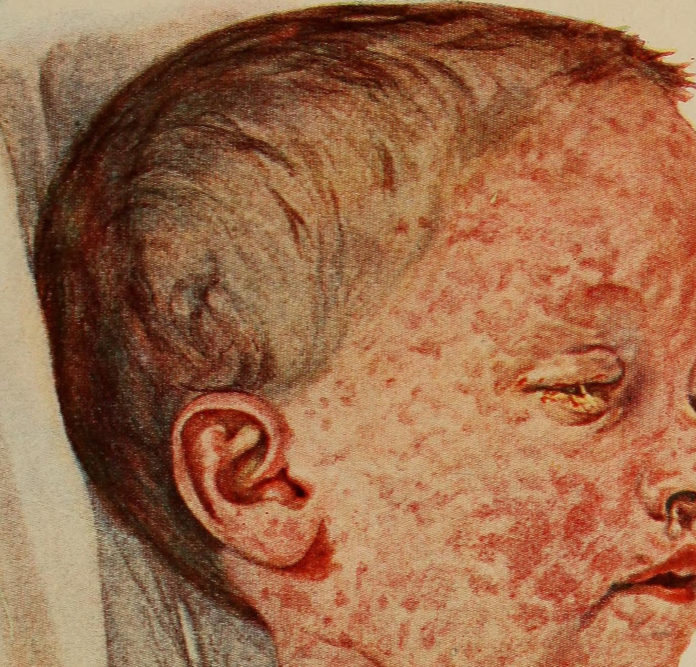Because of gaps in vaccination coverage, measles killed an estimated 110 000 people
A new report by the World Health Organisation and the Centers for Disease Control has sounded warning bells for measles.
Reported measles cases spiked in 2017, as several countries experienced severe and protracted outbreaks of the disease. Because of gaps in vaccination coverage, measles outbreaks occurred in all regions, while there were an estimated 110 000 deaths related to the disease.
Using updated disease modelling data, the report provides the most comprehensive estimates of measles trends over the last 17 years. It shows that since 2000, over 21 million lives have been saved through measles immunizations. However, reported cases increased by more than 30 percent worldwide from 2016.
The Americas, the Eastern Mediterranean Region, and Europe experienced the greatest upsurges in cases in 2017, with the Western Pacific the only World Health Organization (WHO) region where measles incidence fell.
India, as part of the global initiative, has targeted to eliminate measles and control rubella by 2020 and has initiated the world’s largest Measles-Rubella (MR) Campaign targeting to vaccinate 410 million children and adolescents between 9 months to 15 years of age
“The resurgence of measles is of serious concern, with extended outbreaks occurring across regions, and particularly in countries that had achieved, or were close to achieving measles elimination,” said Dr Soumya Swaminathan, Deputy Director General for Programmes at WHO. “Without urgent efforts to increase vaccination coverage and identify populations with unacceptable levels of under-, or unimmunized children, we risk losing decades of progress in protecting children and communities against this devastating, but entirely preventable disease.”

Measles is a serious and highly contagious disease. It can cause debilitating or fatal complications, including encephalitis (an infection that leads to swelling of the brain), severe diarrhoea and dehydration, pneumonia, ear infections and permanent vision loss. Babies and young children with malnutrition and weak immune systems are particularly vulnerable to complications and death.
The disease is preventable through two doses of a safe and effective vaccine. For several years, however, global coverage with the first dose of measles vaccine has stalled at 85 percent. This is far short of the 95 percent needed to prevent outbreaks, and leaves many people, in many communities, susceptible to the disease. Second dose coverage stands at 67 percent.
India, as part of the global initiative, has targeted to eliminate measles and control rubella by 2020 and has initiated the world’s largest Measles-Rubella (MR) Campaign targeting to vaccinate 410 million children and adolescents between 9 months to 15 years of age. The MR campaign began in February 2017, and as of November 2018, 135 million children have been vaccinated in 28 States/UTs. The MR vaccine is also going to replace the Measles vaccine under routine immunization after the campaign, and efforts are being made to increase and sustain high coverages under routine immunization. These efforts will help to reduce measles deaths and avert congenital rubella syndrome in newborn.
“The increase in measles cases is deeply concerning, but not surprising,” said Dr Seth Berkley, CEO of Gavi, the Vaccine Alliance. “Complacency about the disease and the spread of falsehoods about the vaccine in Europe, a collapsing health system in Venezuela and pockets of fragility and low immunization coverage in Africa are combining to bring about a global resurgence of measles after years of progress. Existing strategies need to change: more effort needs to go into increasing routine immunization coverage and strengthening health systems. Otherwise we will continue chasing one outbreak after another.”
Responding to the recent outbreaks, health agencies are calling for sustained investment in immunization systems, alongside efforts to strengthen routine vaccination services. These efforts must focus especially on reaching the poorest, most marginalized communities, including people affected by conflict and displacement.
The agencies also call for actions to build broad-based public support for immunizations, while tackling misinformation and hesitancy around vaccines where these exist.


